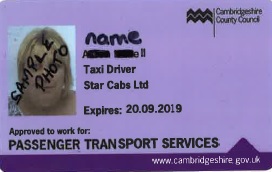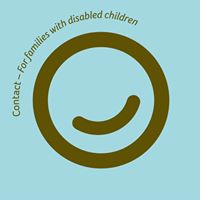Home/school transport

SEND home/school transport in Cambridgeshire is provided through the local authority’s transport team, which arranges journeys and vehicles for over 12000 children and young people to and from school every day.
There are around 1130 SEND students and pupils, although numbers change due to social services’ client requirements.
The transport team is also responsible for around 96 After School Club pupils. In addition, it manages journeys for about 4,500 looked after children (LAC) each month, plus around 2,000 adult journeys a month.
It has over 1,000 active taxi contracts running each day (includes, LAC, respite, older people and SEND transport). These are contracted to reputable, licensed operators who agree to the county council’s terms and conditions. The taxi companies are responsible for recruiting drivers and passenger assistants.
Recruiting suitable staff to work the limited, term-time hours can be very difficult, so that is why some contracts go to out-of-county providers. Certain areas of the county have no local firms who will employ PAs – which, again, is why they are contracted out to a wider area.
However, Cambridgeshire County Council’s SEND transport manager Sue Eagle stressed that the authority has stricter criteria for drivers on Education and Social Services transport than some authorities. For example, anyone convicted of drink driving will not be re-employed for 10 years as opposed to the three years that are normally imposed. All drivers go through a DBS check as part of their licensing with the taxi firm and the council does a further enhanced check on those drivers.
July 2025 updates and contacts
If you have not yet heard about transport for your child starting in September 2025 or if you are having difficulties with transport not arriving or being problematic you can find further information, support and contact details here.
DFE Transport Guidance was updated on 29th June 2023.
Below are a few key points of the guidance, that may of use:
14. To be eligible on these grounds, a child does not need to:
• have an Education Health and Care plan (EHC plan); or
• have travel to school specified in their EHC plan if they have one; or
• attend a special school; or
• live beyond the statutory walking distance.
15. Not every child with an EHC plan or who attends a special school will be eligible for free travel to school.
16. Local authorities will need to assess eligibility on the grounds of special educational needs, disability or mobility problems on a case-by-case basis. The assessment should take account of the child’s physical ability to walk to school and any health and safety issues related to their special educational needs, disability or mobility problems. It may take account of whether they would be able to walk to school if they were accompanied (see paragraphs 47 to 52 for guidance about accompaniment).
17. Information that local authorities may take into account when assessing a child’s eligibility may include (but need not be restricted to) the following, where it illustrates why the child may not be able to walk to school:
- information provided by the parent;
- information provided by any professionals involved in the child’s care, for example, an educational psychologist or hospital consultant;
- information provided by the child’s school;
- any relevant information in the child’s EHC plan if they have one;
- any relevant information in their individual healthcare plan if they have one.
18. It is likely local authorities will need to ask parents to provide some or all the information they will need to make their decision. Wherever possible, they should avoid asking parents for any information which is not already in their (the parent’s) possession or is not easy for them to obtain.
Cambridgeshire SEND Transport Charter
The first edition of the home/school SEND Transport Charter for Cambridgeshire launched at the start of February 2018.
It sets out the responsibilities of families, the local authority, transport providers and schools and colleges in getting our children and young people to and from school and college.
And will be reviewed every three years by the stakeholders, who will also include young people who use the transport, SENTAS, the independent transport advocacy service and SEN caseworkers.
Work on the charter started in the summer of 2017 with a series of parent meetings across Cambridgeshire, hosted by Pinpoint and SENDIASS, to capture views and ideas on the service and how it could be improved.
One big change is the introduction of individual transport passports for all children and young people who use SEND Transport.
Passports will start with new pupils and roll out to existing pupils during the year. Passports will be given to transport companies for their staff to carry on the vehicle. The SEND Transport monitoring team now have built-in checks to look for existing passports as they carry out their checks at schools.
- View the Cambridgeshire SEND Transport Charter
- Take a look at an Example Transport Passport
- The page also has key transport contacts if you have a problem with your child or young person’s SEND transport.
- Want to see if your child might be eligible for school transport – you can find more information on the Local Authority’s website
Good to knows ...
Re-tendering contracts
Contracts have to be reviewed every three years and re-tendering is now on an individual school (not geographical) basis and will start only at the beginning of the academic year to give everyone more time to plan and communicate any changes.
Training
Some drivers and PAs need bespoke or very specific NHS/medical training to safely transport certain pupils with additional needs/disabilities. Last year, the county council organised Autism Education Trust training for 400 drivers and staff.
Transport concern? Advice for parents ...
- If you have a concern over your child or young person’s transport, do alert the Transport team as soon as you can and the team will do its best to sort things out.
- All licensed drivers and passenger assistants should be able to provide a photo ID showing DBS enhanced clearance.
 These are purple badges, approved by Cambridgeshire County Council’s transport team. See the sample one here.
These are purple badges, approved by Cambridgeshire County Council’s transport team. See the sample one here.
- If your usual driver or PA is sick and somebody new arrives to transport your child or young person without any notice and does not introduce themselves and show their purple badge – please let the transport office know.
- Usual taxi broken down? Concerned a vehicle is not roadworthy? New vehicle taking your son or daughter to school? Call the transport team. They can make spot checks and award penalties to companies not adhering to the contract agreement or vehicle maintenance regulations.
- If timings are an issue, or you have concerns regarding staff, medical needs, equipment, pupil behaviour, child protection, Parents should contact transport – numbers and email below.
Key contacts
In the first instance email edtransport@cambridgeshire.gov.uk.
You can also call the SEND Transport team on 0345 045 5208, option 1.
These communications channels are monitored regularly. Email is best as phones are usually very busy.
If you need to contact one of the team specifically, details are:
Manager – Shelley Kingston: Shelley.Kingston@cambridgeshire.gov.uk
Abigail Farrimond: Abigail.Farrimond@cambridgeshire.gov.uk
Emily Winwick: Emily.Winwick@cambridgeshire.gov.uk
Transport for post-16s
 UK charity Contact, which supports families with disabled children, ran a school transport inquiry in 2017 and found local authorities “are increasingly reducing or charging school transport for 16 and 17 years – often with little notice.”
UK charity Contact, which supports families with disabled children, ran a school transport inquiry in 2017 and found local authorities “are increasingly reducing or charging school transport for 16 and 17 years – often with little notice.”
It says that “these seemingly small changes can have devastating consequences for families.” And has therefore produced new information for families, explaining their rights and how to challenge decisions.
